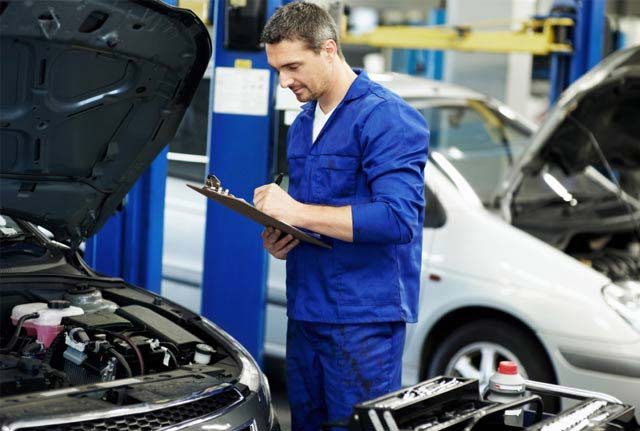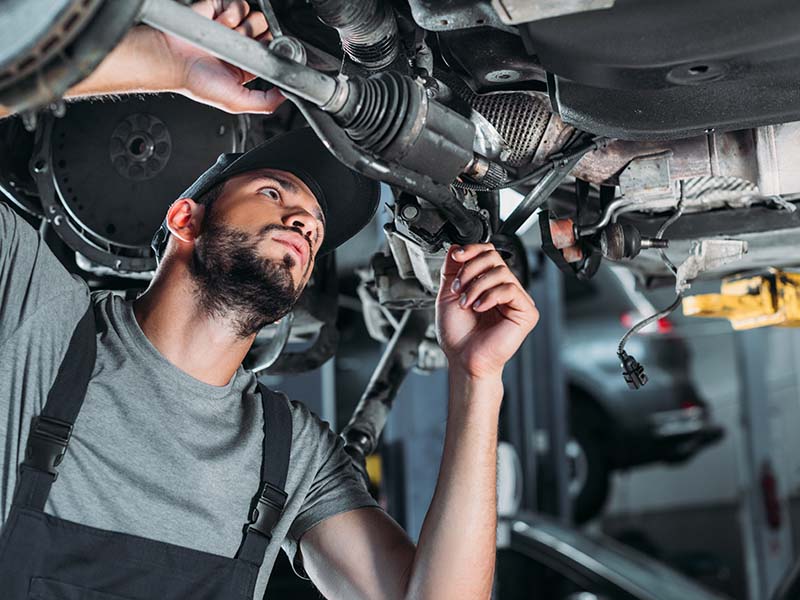All Categories
Featured
The engine is among one of the most essential parts of any kind of automobile, and keeping it in leading form is necessary for long life and effectiveness. Expensive engine repair work can be an economic problem, yet you can minimize this risk with proper preventive care. Here are some useful steps you can take to guarantee your engine stays reliable and healthy.
Oil is the lifeblood of your engine, oiling its stopping and relocating components deterioration. With time, engine oil comes to be unclean and loses its performance. Follow your supplier's guidelines for oil adjustment intervals, generally every 3,000 to 5,000 miles or as recommended for synthetic oils. Neglecting oil modifications can bring about increased friction, getting too hot, and pricey engine damage.
The air conditioning system regulates your engine's temperature level, stopping it from overheating. Low or dirty coolant can bring about overheating and create considerable damages to engine elements. Consistently inspect coolant degrees and purge the system as recommended by your car's maintenance routine.
A tidy air filter makes sure that your engine obtains an appropriate supply of clean air for burning. Unclean air filters restrict air movement, making the engine work more difficult and decreasing fuel performance. If it appears filthy or blocked., evaluate your air filter periodically and change it.
![]()
Dashboard warning lights, specifically the check engine light, must never ever be disregarded. These indicators notify you to possible issues with the engine or relevant systems. Quickly diagnosing and repairing these problems can avoid them from escalating into much more serious and expensive repair work.
Driving with too much tons or in severe conditions can stress your engine. In time, this anxiety can lead to getting too hot and wear. Adhere to your automobile's suggested weight limitations and avoid revving the engine exceedingly during procedure.
Making use of costs or top quality fuel can protect against carbon down payments from developing inside your engine. Sometimes, adding a gas system cleaner can also help keep fuel injector and valve tidiness, ensuring ideal engine performance.
Hoses and belts are necessary for the correct performance of your engine's cooling, electrical, and air conditioning systems. Frequently inspect these components for indications of wear, cracks, or leaks, and change them as required.
Abrupt acceleration and stopping can stress your engine and drivetrain. By driving efficiently and keeping a steady speed, you minimize unnecessary anxiety on the engine, advertising its lasting health.
![]()
Also if your automobile seems to be running fine, routine examinations by a professional mechanic can reveal potential problems before they end up being considerable. Mechanics can recognize and deal with early indications of wear or malfunction, conserving you cash in the lengthy run.
By embracing these safety nets, you can stay clear of the high expenses connected with engine repairs and guarantee your car stays in exceptional condition for years. Routine upkeep and care not just conserve cash however also give comfort when traveling.
- Schedule Regular Oil Modifications
Oil is the lifeblood of your engine, oiling its stopping and relocating components deterioration. With time, engine oil comes to be unclean and loses its performance. Follow your supplier's guidelines for oil adjustment intervals, generally every 3,000 to 5,000 miles or as recommended for synthetic oils. Neglecting oil modifications can bring about increased friction, getting too hot, and pricey engine damage.
- Maintain an Eye on Engine Coolant Levels
The air conditioning system regulates your engine's temperature level, stopping it from overheating. Low or dirty coolant can bring about overheating and create considerable damages to engine elements. Consistently inspect coolant degrees and purge the system as recommended by your car's maintenance routine.
- Change Air Filters as Needed
A tidy air filter makes sure that your engine obtains an appropriate supply of clean air for burning. Unclean air filters restrict air movement, making the engine work more difficult and decreasing fuel performance. If it appears filthy or blocked., evaluate your air filter periodically and change it.

- Monitor and Address Warning Lights
Dashboard warning lights, specifically the check engine light, must never ever be disregarded. These indicators notify you to possible issues with the engine or relevant systems. Quickly diagnosing and repairing these problems can avoid them from escalating into much more serious and expensive repair work.
- Avoid Overworking Your Engine
Driving with too much tons or in severe conditions can stress your engine. In time, this anxiety can lead to getting too hot and wear. Adhere to your automobile's suggested weight limitations and avoid revving the engine exceedingly during procedure.
- Use High-Quality Fuel and Additives
Making use of costs or top quality fuel can protect against carbon down payments from developing inside your engine. Sometimes, adding a gas system cleaner can also help keep fuel injector and valve tidiness, ensuring ideal engine performance.
- Replace Worn Belts and Hoses
Hoses and belts are necessary for the correct performance of your engine's cooling, electrical, and air conditioning systems. Frequently inspect these components for indications of wear, cracks, or leaks, and change them as required.
- Exercise Smooth Driving Practices
Abrupt acceleration and stopping can stress your engine and drivetrain. By driving efficiently and keeping a steady speed, you minimize unnecessary anxiety on the engine, advertising its lasting health.
- Get Professional Evaluations

Also if your automobile seems to be running fine, routine examinations by a professional mechanic can reveal potential problems before they end up being considerable. Mechanics can recognize and deal with early indications of wear or malfunction, conserving you cash in the lengthy run.
By embracing these safety nets, you can stay clear of the high expenses connected with engine repairs and guarantee your car stays in exceptional condition for years. Routine upkeep and care not just conserve cash however also give comfort when traveling.
Latest Posts
Affordable Luxury: Discover the Advantages of Laminate Floor Covering
Published Apr 20, 25
1 min read
Score Major Discounts with Montclare Auto Repair Offers - Act Fast!
Published Apr 20, 25
2 min read
Maximize Your Savings Prospective with WyHy MAX Money Market
Published Apr 20, 25
1 min read
More
Latest Posts
Affordable Luxury: Discover the Advantages of Laminate Floor Covering
Published Apr 20, 25
1 min read
Score Major Discounts with Montclare Auto Repair Offers - Act Fast!
Published Apr 20, 25
2 min read
Maximize Your Savings Prospective with WyHy MAX Money Market
Published Apr 20, 25
1 min read